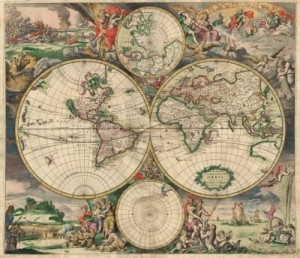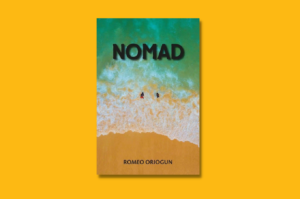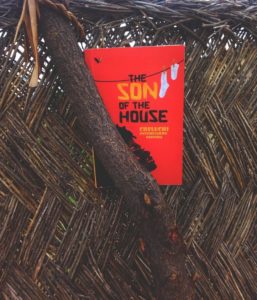I don’t know what to call this piece of writing. Is it a cross between a review and a summary–two of the most boring genres? If that is what you make of it, I apologize. On the brighter side, let’s just say that it’s my immediate response–written months ago– to a book I read this past summer and loved dearly.
 Nations are like divine beings. Even though they have a beginning—often fuzzy and wrapped up in myth— they are eternal. Pause for a second. See if you can think of the world without your country. Funny how it’s easier to think of the world without yourself than without your homeland. It doesn’t matter how much you hate where you are from, how bad things are at home, or how much of a globally minded person you are, there is always that one place that for some reason feels so natural in its existence, like it was meant to be.
Nations are like divine beings. Even though they have a beginning—often fuzzy and wrapped up in myth— they are eternal. Pause for a second. See if you can think of the world without your country. Funny how it’s easier to think of the world without yourself than without your homeland. It doesn’t matter how much you hate where you are from, how bad things are at home, or how much of a globally minded person you are, there is always that one place that for some reason feels so natural in its existence, like it was meant to be.
If you are French, over 65 million people, most of whom you will never ever know or meet in your life time, share these same feelings with you. Is that absurd or what? Not really. Ask Benedict Anderson, a well-known Irish writer who wrote a book titled, Imagined Communities: Reflection on the Origin and Spread of Nationalism. His point is that nations and national identity are the product of complex mechanisms of imagined relationships. Counter-intuitive, yes, but provocative nonetheless. Perhaps, it is important to note here that “imagined” should not be mistaken for “imaginary.” But why spend time on elaborating on a minor distinction when there are far more titillating thoughts to examine?
For someone so bright, Anderson’s ideas are simple to follow. All the shocking details are in the short introduction so that by the time you really start to read, you would not be jolted out of your sit when you read that if Mr. Gutenberg had not gotten it right, Britain as we know it may have been something completely different—maybe a village or city-state run by a priest-king and over-run by a Latin-speaking people. The chances are, though, that Britons hardly ever stop to thank Gutenberg or the network of men two-timing as writers and capitalists responsible for moving Latin up into the intellectual clouds and standardizing the English language for regular folks. By essentially giving Britons a language through which they could both imagine and share what they imagine about the world that they shared, these lowly booksellers, perhaps much more than Cromwell, ought to be the celebrities of history. In a sense, it would be more accurate to think of England as an idea invented, through language, with the aid of mechanical printing presses and century-long paper trails left by industrious book mongers.
Speaking of nations as inventions probably sounds strange. There is clearly a blasphemous ring to the thought that our homelands are ideas invented the same way knitting and ironing were invented. It feels almost as weird as saying that a child is an invention. In any case, nations are often imagined in human terms. They are born. They grow up like little boys and girls and become mature. They father and mother children. They acquire friends and enemies. They can get sick and recover. They go through the life cycle of a human even though they are expected to skip the dying part. We refer to them endearingly as Vaterland, patria familia, fatherland and call the means we employ to express our love for them our mother tongue. It is partly because homelands are imagined through the image of the family that they also have rules of exclusivity. There are times when people love their religion so much that they kill to gain souls for it, but you will never see a nation trying to proselytize. I am yet to meet the Slovenian or the Ghanaian national who loves his country so much that she dreams of the day when the whole world would become Slovenian or Ghanaian. For a nation to truly feel special in the closed sort of way that families feel special, it must be able to guarantee its freedom to be itself and to be exclusive.
Back in the days, Christianity and Islam argued for their specialness on the bases of divine inspiration. Kings did the same thing. The great kings of the Benin empire, apart from been powerful and resourceful rulers, needed to ensure that their people imagined them as sovereign, so they claimed that they were divine. Today, if nations cannot appeal to divine ordination, they assert their sovereignty as a way of asserting their freedom to be the special things that they claim to be. And unlike kingdoms where everyone knew their place and ranks, with nations people easily forget that there is as much inequalities and exploitation as one can find in any other form of government. The term, Nigerian, says nothing about the economic, gender, or political inequalities that feature in the social and political history and life of Nigeria. Anderson has a term for this capacity of nations to cast a spell over people and have them imagine the ties that bind them beyond social realities of inequality. He calls it “horizontal comradeship.”
You know the warm, fuzzy feeling you get when your country scores a goal in the world cup? Anderson’s point (I am guilty of some misreading here) is that at bottom national identity is really just that: a warm, fuzzy feeling.
Photo Credit: Kristina Schlosser’s Blog









Inger Leichty March 02, 2011 19:20
Very nice! I always feel goofy when I find this kind of stuff interesting.